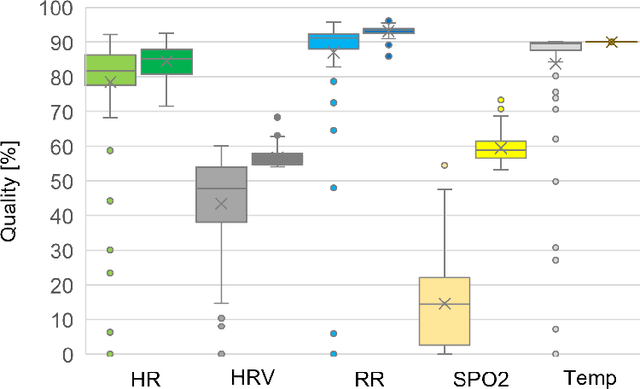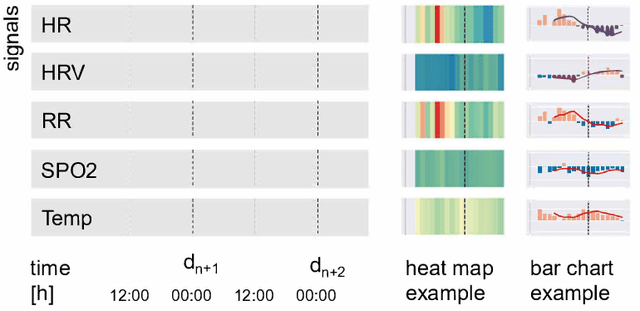Sujeanthraa Thanabalasingam
Visualization and Analysis of Wearable Health Data From COVID-19 Patients
Jan 19, 2022



Abstract:Effective visualizations were evaluated to reveal relevant health patterns from multi-sensor real-time wearable devices that recorded vital signs from patients admitted to hospital with COVID-19. Furthermore, specific challenges associated with wearable health data visualizations, such as fluctuating data quality resulting from compliance problems, time needed to charge the device and technical problems are described. As a primary use case, we examined the detection and communication of relevant health patterns visible in the vital signs acquired by the technology. Customized heat maps and bar charts were used to specifically highlight medically relevant patterns in vital signs. A survey of two medical doctors, one clinical project manager and seven health data science researchers was conducted to evaluate the visualization methods. From a dataset of 84 hospitalized COVID-19 patients, we extracted one typical COVID-19 patient history and based on the visualizations showcased the health history of two noteworthy patients. The visualizations were shown to be effective, simple and intuitive in deducing the health status of patients. For clinical staff who are time-constrained and responsible for numerous patients, such visualization methods can be an effective tool to enable continuous acquisition and monitoring of patients' health statuses even remotely.
 Add to Chrome
Add to Chrome Add to Firefox
Add to Firefox Add to Edge
Add to Edge